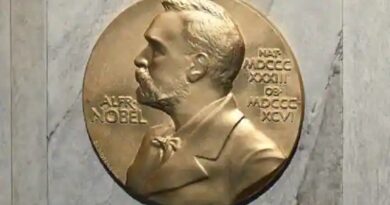NASA Fires DEI Chief Neela Rajendra Amid Federal Crackdown on Diversity Programs

Neela Rajendra, an Indian-origin diversity, equity, and inclusion (DEI) leader, was recently dismissed from her role at NASA’s Jet Propulsion Laboratory (JPL), despite efforts by the agency to protect her position in light of new federal directives targeting DEI initiatives.
Rajendra, who had served as the Chief Diversity, Equity, and Inclusion Officer, saw her role rebranded earlier this year to “Chief of the Office of Team Excellence and Employee Success.” The move was reportedly intended to shield her from an executive order signed by President Donald Trump, which called for the elimination of federal DEI programs and related contracts. However, despite the title change, she continued to lead DEI-related initiatives, including managing the “Black Excellence Strategic Team” and supporting inclusion efforts across NASA’s workforce.
Her termination came amid NASA’s broader dismantling of its DEIA (Diversity, Equity, Inclusion, and Accessibility) infrastructure. In March 2025, the space agency announced it would be shutting down its DEIA offices and canceling associated programs, aligning with the administration’s directive. This sweeping policy change has sparked debate over the future of diversity and inclusion in federal agencies, especially those in STEM fields where such efforts have historically aimed to close opportunity gaps for underrepresented groups.
During her tenure, Rajendra was known for her work in spearheading key initiatives such as the “Space Workforce 2030” pledge, which aimed to increase the representation of women and minorities across the aerospace sector. She also co-founded the Science of Diversity & Inclusion Initiative (SODI), bringing together over 100 social scientists and multiple industry partners to promote evidence-based approaches to workplace inclusion.
Rajendra’s departure has been met with concern from many in the scientific community who see the removal of DEI efforts as a step backward. Supporters argue that such programs are essential for ensuring equitable opportunities and fostering innovation through diverse perspectives.
While NASA has yet to make a detailed public statement on Rajendra’s dismissal, her case reflects a broader shift in federal policy—and its consequences for agencies striving to balance scientific excellence with social responsibility.
As the DEI debate continues, Rajendra’s story stands as a flashpoint in the larger national conversation about equity, leadership, and the changing landscape of workplace values in the U.S. government.





